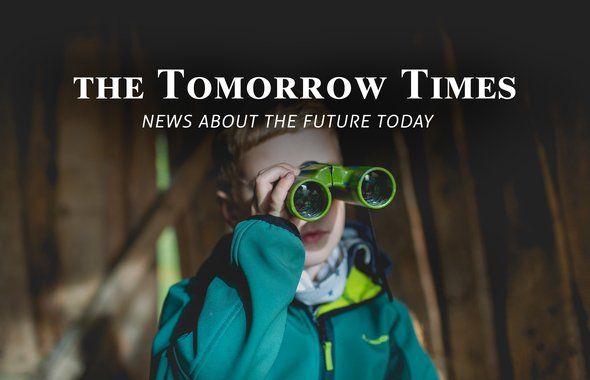In this edition, we talk about how sustainability can be approached with systemic frameworks. Read the latest news about transformative future scenarios, inspiring partnerships, circular initiatives, how data-based tools can change the world and much more.
Systemic sustainability means treating an end-product not as a separate entity but as part of a web of connections. The most well-meaning innovations can fail if the interconnectedness creates unplanned results. Technology, products and living beings can be seen as ‘objects’ which interface through connections that give rise to complex systems. This holds true regardless of whether the system is an apartment complex or a beer bottle. In this recently published article, you can read our analysis of what went wrong in a Chinese urban dream and why you need to put lemons in your beer, through the lens of Symbiosis in Development framework.
Stay curious, keep up to date, and get inspired, all in a quick read.
Follow these periodical monthly updates of tomorrow’s sustainability news today, by subscribing to the Tomorrow Times.
Energy & Environment

- Imagining transformative futures. Stories which show that choices have consequences. Some close down options. Some open up multiple pathways. Either way, choices create winners and losers. The critical challenges of the Anthropocene require actions. Imagination can help communities grapple with these challenges by embracing diverse ways of thinking, listening, being and knowing.
- Covid-19 side effects on Kenya’s biodiversity. In many places in Kenya, the diversity of habitats and wildlife has dropped as a consequence of overstocked livestock. Local communities as the Maasai has embraced a solution that is now threatened by the lack of tourism. Cause and effect are interconnected in unexpected ways in complex systems and offers us the opportunity to reinvent economic systems that preserve local communities and ecosystems in a resilient way.
- Surprising things are happening. Industrial giant stops building coal-fired power plants and China aims to carbon neutrality. General Electric, one of the world's biggest makers of coal-fired power plants is to exit the market and focus on greener alternatives. While China’s leader, Xi Jinping, made a surprisingly announced that China would strive for “carbon neutrality” by 2060.
Business & Economy

- The ingredients for successful partnerships. If Covid-19 has taught us one thing, it is that the world is entirely interconnected and that change can only happen through cooperation. Multiple parts of the economy and society need to be engaged in innovation and investment at the same time. If change-making is a team sport, what defines the winning teams?
- The contribution of Google.org to the SDGs. Jacquelline Fuller heads up Google.org, the tech giant's data-driven, philanthropic arm tackling the world's biggest problems using a combination of innovation, funding and technical expertise. "What can we do together? I think we all need to think about where we can plug in and have the biggest impact.”
- All Timberland products 100% circular, net positive by 2030. The brand is aiming to design 100% of its products for circularity, and source 100% of materials from regenerative agriculture.
- Free online course on systemic sustainability. The need for sustainability literacy is ever-growing, which is why we now offer a free online course on systemic sustainability and the SiD framework, available on FutureLearn.
Science, Technology & Design

- LCA in a receipt. ASKET unveils to their costumers the environmental cost of what they are buying and they are doing it directly in their recipes with a ‘miniature-LCA’ for four of their most popular clothing products. A full price breakdown, covering the cost of the raw material, fabric production, labour and mark-up. A true inspiration for other manufacturers.
- Science-Based Target Setting Tool. The Science Based Targets initiative’s new framework helps financial institutions to set science-based targets to align their lending and investment activities with the Paris Agreement.
- European roadmaps for a greener, healthier and more resilient Europe. At the European Research and Innovation Days, top experts have presented their proposals to the European Commission for possible missions on some of our most pressing societal challenges. By 2030, the proposed missions aim to find solutions for saving more lives from cancer, making Europe climate-resilient, restoring our ocean and waters, achieving 100 climate-neutral cities, and ensuring 75% of soils are healthy.
Urban Environment

- Major cities commit to divest from fossil fuel and invest in circular economy. 12 cities have made a pledge to divest from fossil fuel companies as part of their commitment to accelerating a green recovery from Covid-19. At the same time, major European cities, including Copenhagen and Prague, have signed the European Circular Cities Declaration, recognising the need to accelerate the transition to a circular economy.
- The importance of indoor climate on health, wellbeing and productivity. Measuring and improving the quality of the indoor environment is essential to our experience of buildings and their impact on our health.
- Greening the cities. From garden streets to bike highways: four ideas for post-Covid cities, visualised.
Unexpected and Intriguing

- 17 ways technology could change the world by 2025. From quantum computers to AI-optimized healthcare and manufacturing. A world where the division between physical and virtual spaces becomes blurry.
- European Green Deal Call is open. €1 billion investment in green and digital transition, including 20 different topics, making it the largest single Horizon 2020 call.
- The real beauty of toys. The value of the global toy market exceeded $90 billion in 2019, but with 80% of all toys ending up in a landfill. The Ellen MacArthur Foundation addresses the steps towards a circular toy industry. Key? Make toys that arouse a sense of affection and attachment. Marie Kondo tells us that the best way to choose what to keep is to take it in your hand and ask: “Does this spark joy?”
- Inspiring circular economy solutions. Take a quick journey across the world exploring how we're working to end plastic waste in this National Geographic interactive article. Exemplary projects which include Feedstock recycling, Biobased plastic, Waste picker cooperatives, Fully recyclable packaging and Employee volunteers. Haven't you had enough? Here for you other 39 examples.
Have you seen a news item suited for 'The Tomorrow Times'? Let us know and we'll consider including it in the next edition.
Previous Tomorrow Times editions
Find all Tomorrow Times editions and newsletters here.
Nov. 3, 2020

